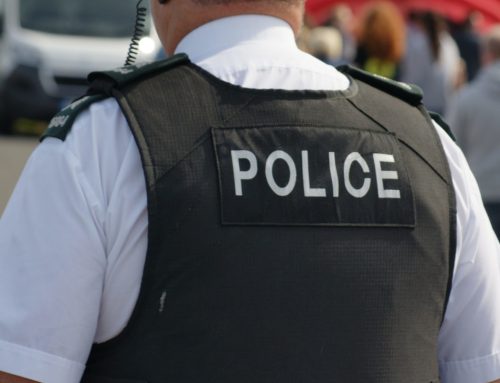If you're impaired by drugs or alcohol, your motor skills are affected and your reaction time is slowed, hindering your ability to drive responsibly and safely. Impaired driving is the leading criminal cause of death in Canada, and drunk driving laws instituted in the past few years make the penalties tougher.
The consequences for an impaired driving offence in Canada can be severe. Depending on the specific circumstances of your case and your criminal record, you could face penalties such as fines, imprisonment, license suspension, and mandatory participation in alcohol education programs.
Having an experienced impaired driving lawyer on your side can make all the difference in the outcome of your case. An experienced impaired driving lawyer can help you to understand the charges against you, navigate the legal process, and defend your rights and interests in court.
Is Impaired Driving a Criminal Offence in Canada?
If you drive while impaired in Canada, you are likely to face federal criminal charges as well as provincial charges.
If convicted, you are likely to face fines, a jail sentence and restrictions on your ability to drive. While the federal legal blood alcohol concentration is 0.08, you can be convicted of alcohol-impaired driving with a lower blood alcohol concentration if your ability to drive is shown to be impaired.
The Canadian Criminal Code includes the following specific impaired driving offences:
What Is Considered "Legally Impaired" in Canada?

A driver is considered legally impaired if they operate a vehicle while compromised by the consumption of alcohol or drugs, which include prescription medications, cannabis, over-the-counter drugs, illegal substances and other drugs. Operating a vehicle under the influence of a combination of drugs and alcohol also constitutes impaired driving. If your ability to drive is impaired at all by drugs or alcohol, you can still be charged with impaired driving even if your blood alcohol concentration or blood drug concentration is under the legal limit.
Impairment Penalties
If the police determine that you're driving while impaired, you may be prohibited from driving for 24 hours or more. You may also face vehicle impoundment and be required to attend education programs or install an ignition interlock device on your car. This device measures the driver's blood alcohol content before allowing the ignition to turn on. A review of your driving record by ICBC may result in further prohibitions, depending in part on whether it's your first, second or third offence.
Provincial Warn Range Penalties
BC drivers who blow a Warn on an Approved Screening Device but whose blood alcohol concentration is lower than 0.08 will face a 3-day license suspension and a $200 fine for their first offence within a 5-year period, a 7-day license suspension and a $300 fine for their second offence, and a 30-day license suspension and a $400 fine for their third offence.
In addition to these administrative fines, you will also be potentially responsible for paying for the towing and impoundment of your vehicle and a $250 relicensing fee to regain your license. Police may take your license away immediately, and your driving prohibition starts at the moment they issue the Notice of Driving Prohibition.
Provincial Fail or Refusal Penalties
Drivers who blow a Fail on an Approved Screening Device and those who fail a drug evaluation or who don't comply with alcohol or drug testing may receive an immediate 90-day license suspension, a $500 fine and mandatory vehicle impoundment for 30 days. These penalties also apply to anyone who refuses to provide a breath sample when asked.
Police will take your driver's license away immediately, and your driving prohibition starts at the moment they issue the Notice of Driving Prohibition. They may issue criminal impaired driving charges or they may serve you with an administrative driving prohibition.
In addition, RoadSafetyBC may require you to go through the Responsible Driver Program or to have an ignition interlock device installed on your car, once you're allowed to drive again. If required to enroll in these programs, you will also be responsible for paying the fees which can often be more than $1000.
Criminal Charges
Drivers who are criminally charged with drug or alcohol impaired driving must go to court. If convicted, they will have their license suspended for a minimum of a year.
The first conviction results in a 1-year suspension, and the second conviction results in a 3-year suspension. Upon the third conviction, the driver loses their license indefinitely and may not reapply for a license for 5 years.
In addition, those convicted of driving while drug-impaired or alcohol-impaired may have to pay fines and may be sentenced to a prison sentence. They are likely to have to attend the Responsible Driver Program and install an ignition interlock device, and RoadSafetyBC has the right to impose additional prohibitions.
Additionally, those convicted must pay a Driver Risk Premium on their insurance, which can range from $1,108 to $29,376, depending on the number of prohibitions.
Graduated Licensing Program Participants
New drivers participating in the Graduated Licensing Program will receive a 12-hour suspension and must start their 24-month licensing period over from the beginning if they have alcohol, cocaine or THC (the active ingredient in cannabis) in their system.
Learners must undergo all tests again. They also receive all the consequences of fully licensed drivers if they have any drugs at all in their system, or if their blood alcohol concentration is 0.05% or higher.
Drug-Impaired Driving
Drug-impaired drivers who have prescription drugs, cannabis or over-the-counter drugs in their system face the same penalties and driver's license suspensions as those driving under the influence of alcohol, as detailed above.
Enforcement of Drug-Impaired Driving Laws
Canadian police can stop drivers to ask if they've been consuming drugs or alcohol. They can assess drivers' appearance, movement and answers to questions, in addition to performing breath-screening tests and blood tests.
Refusing to provide a sample to a valid demand is a criminal offence. Drug Recognition Experts may also observe a driver's eyes, attention, pulse, blood pressure, arms, neck, exposed skin and muscle tone to determine if someone is driving drug-impaired.
A concentration of 5 nanograms per milliliter of THC in the blood is grounds for driving prohibitions, as is any detectable level of LSD, psilocybin, psilocin, PCP, monoacetylmorphine, ketamine, cocaine, GHB or methamphetamine.












